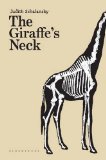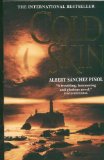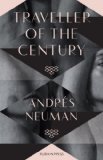 Translated from the German by Shaun Whiteside
Translated from the German by Shaun Whiteside
Five words from the blurb: teacher, scorns, students, species, succeed
The Giraffe’s Neck is narrated by Frau Lomark, a biology teacher who believes that Darwin’s principle of evolution should be applied to humans. She thinks that most teachers waste their time indulging their less-able pupils; whilst she prefers to concentrate on giving her knowledge to intelligent individuals – the ones that will make the most use of it.
Frau Lomark was a wonderfully bitter character. Her observations could be considered offensive, but there was something about their honesty that drew me in. The book raised many interesting questions about how much teachers are able to change the lives of their pupils and whether or not is it possible to engage everyone:
It just wasn’t worth it, dragging the weak ones along with you. They were nothing but millstones that held the rest back. Born recidivists. Parasites on the healthy body of the class. Sooner or later the dimmer bulbs would be left behind anyway. It was advisable to confront them with the truth as early as possible, rather than giving them another chance after each failure.
The writing quality was outstanding. Some people might find the biological details confusing, but I was very impressed. It is rare to find scientific information combined with such beautiful writing and I loved to see the moral arguments backed up with sound genetic data.
Unfortunately the plot didn’t develop as cleverly as I’d hoped. The momentum that built up over the first half of the book disappeared, leaving me a little disappointed.
Overall this was a thought provoking book, with many bold concepts. The minor problems with the plot can be forgiven because of the general intelligence of the text.
Recommended to anyone interested in the nature versus nurture debate and the way it applies to teachers.

.











